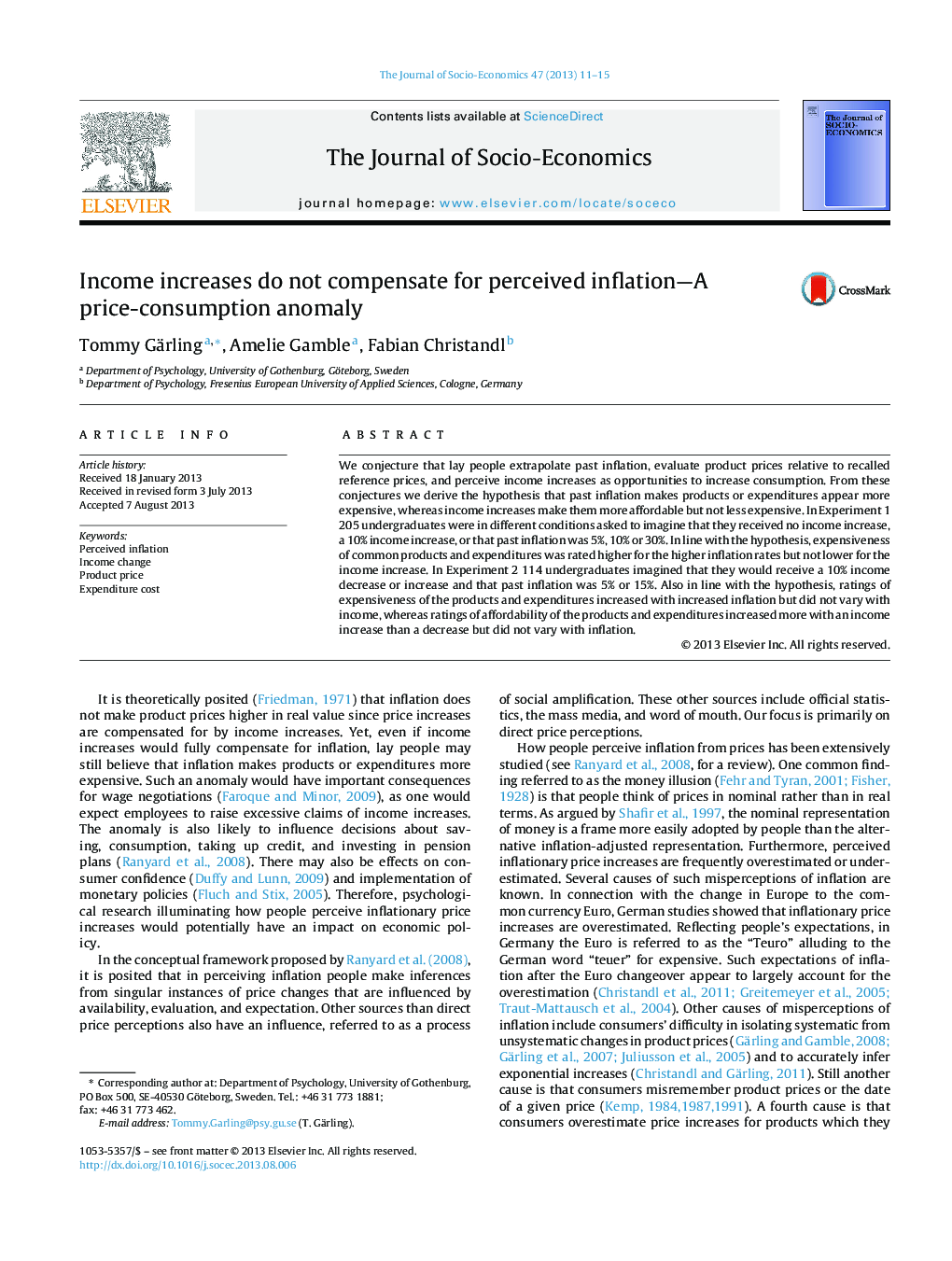| Article ID | Journal | Published Year | Pages | File Type |
|---|---|---|---|---|
| 7370463 | The Journal of Socio-Economics | 2013 | 5 Pages |
Abstract
We conjecture that lay people extrapolate past inflation, evaluate product prices relative to recalled reference prices, and perceive income increases as opportunities to increase consumption. From these conjectures we derive the hypothesis that past inflation makes products or expenditures appear more expensive, whereas income increases make them more affordable but not less expensive. In Experiment 1 205 undergraduates were in different conditions asked to imagine that they received no income increase, a 10% income increase, or that past inflation was 5%, 10% or 30%. In line with the hypothesis, expensiveness of common products and expenditures was rated higher for the higher inflation rates but not lower for the income increase. In Experiment 2 114 undergraduates imagined that they would receive a 10% income decrease or increase and that past inflation was 5% or 15%. Also in line with the hypothesis, ratings of expensiveness of the products and expenditures increased with increased inflation but did not vary with income, whereas ratings of affordability of the products and expenditures increased more with an income increase than a decrease but did not vary with inflation.
Keywords
Related Topics
Social Sciences and Humanities
Economics, Econometrics and Finance
Economics and Econometrics
Authors
Tommy Gärling, Amelie Gamble, Fabian Christandl,
